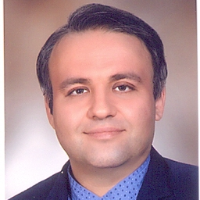Patient Education Barriers from Nurse's Opinions
Author(s):
Abstract:
Introduction
Patient education is one of the important aspects of nursing care and is among nursing key roles in delivery of health services.Objective
This study aimed to determine the barriers to patient education from nurse's viewpoint employed in educational hospitals affiliated to Shahid Sadoughi University of Medical Sciences in Yazd.Methods
This study was a cross-sectional and descriptiveanalytical study in which 162 nursing personnel were selected by stratified-random sampling method. In order to perform the sampling according to the population of each hospital, the numbers of samples were determined. Data were collected with a two-part questionnaire. First part contained personal and demographic information such as age, sex, marital status, education and working experience. The second part included 19 questions on patient education barriers which evaluated four domains of working conditions, management, nursing attitude and training skills. The data were analyzed by descriptive statistics and chi-square statistical test. Answers were designed based on a Likert scale from low to average and high impact with scores of 1-3, respectively. In management domain, the scores ranged from 6 to 18. Scores less than 10 showed "low impact", 10 to 14 "average impact" and more than 14 "high impact". In the domain of working conditions, similar scores were obtained. The findings displayed that nurse's attitude ranged from 2 to 6 scores. Scores less than 3 showed "low impact", 3-4.5 "average impact" and more than 4.5 "high impact". In domain of training skills, scores ranged from 5 to 15. Scores less than 8 indicated "low impact", 8 to 11.5 "average impact" and more than 11.5 "high impact". The data were analyzed with descriptive statistics and chi-square. The study was approved by the Ethics Committee of Health Faculty, Shahid Sadoughi University of Medical Sciences in Yazd.Results
In this study, 149 of the 162 questionnaires were answered indicating92% response rate. The data showed that 45.2% of male nurses and 47.3% of female nurses blamed working condition barriers with highest impact on the implementation of patient education. Moreover, 45.8% of single and 47.5% of married nurses had the same opinion. Chi-square test found no significant relationship between the variables of age, sex, working experience, employment status, marital status, and educational level with patient education barriers (P≥0.05).The data showed that 31.5% of nurses believed that barriers related to management had the greatest impact on the implementation of patient education followed by 47.7% barriers to working condition, 2.7% attitude of nurses and 14.1% training skills. Chi-square test showed a significant correlation between the domains of working condition and type of hospital (P=0.048). Working condition was proved as the most important factor. Management was the second factor followed by training skills as the third. Finally, attitude of nurses was identified as the least important patient education barrier.
The results of the present study revealed three factors with highest impact as education barriers in nurse's opinion; high working load (74.5%), insufficient nursing stuff in wards (71.8%) and nursing shifts in a row (70.4%) in working condition domain. The study population reported three factors with lowest impact; training as a specific task assigned for doctors (54.4%), lack of nurses self-confidence for training (43.5%) and not delivering the trainings to patients (40.3%).
Conclusion
In attention to that the domain of nurses working conditions had the greatest impact on the education of the patients, it is recommended that official authorities to maintain nursing resource in hospitals and reduce their workload and provide facilities and conditions for educational programs to encourage nurses to consider this important issue.Keywords:
Language:
Persian
Published:
Journal of Holistic Nursing and Midwifery, Volume:26 Issue: 3, 2016
Pages:
36 to 45
magiran.com/p1581960
دانلود و مطالعه متن این مقاله با یکی از روشهای زیر امکان پذیر است:
اشتراک شخصی
با عضویت و پرداخت آنلاین حق اشتراک یکساله به مبلغ 1,390,000ريال میتوانید 70 عنوان مطلب دانلود کنید!
اشتراک سازمانی
به کتابخانه دانشگاه یا محل کار خود پیشنهاد کنید تا اشتراک سازمانی این پایگاه را برای دسترسی نامحدود همه کاربران به متن مطالب تهیه نمایند!
توجه!
- حق عضویت دریافتی صرف حمایت از نشریات عضو و نگهداری، تکمیل و توسعه مگیران میشود.
- پرداخت حق اشتراک و دانلود مقالات اجازه بازنشر آن در سایر رسانههای چاپی و دیجیتال را به کاربر نمیدهد.
In order to view content subscription is required
Personal subscription
Subscribe magiran.com for 70 € euros via PayPal and download 70 articles during a year.
Organization subscription
Please contact us to subscribe your university or library for unlimited access!



